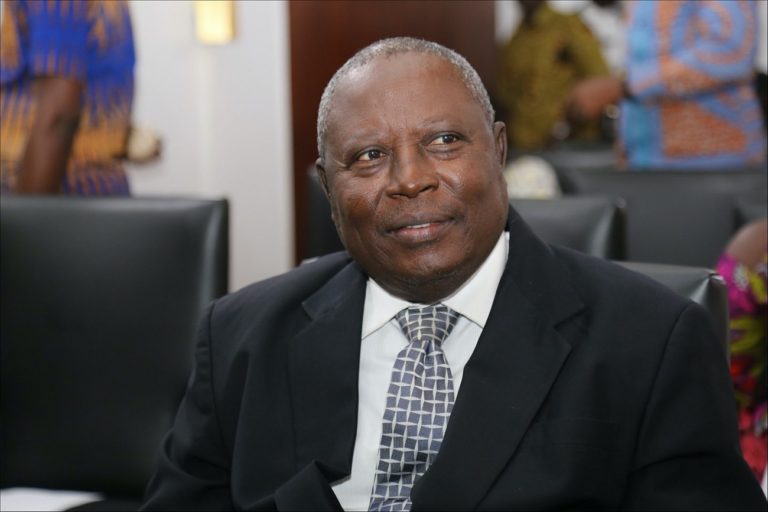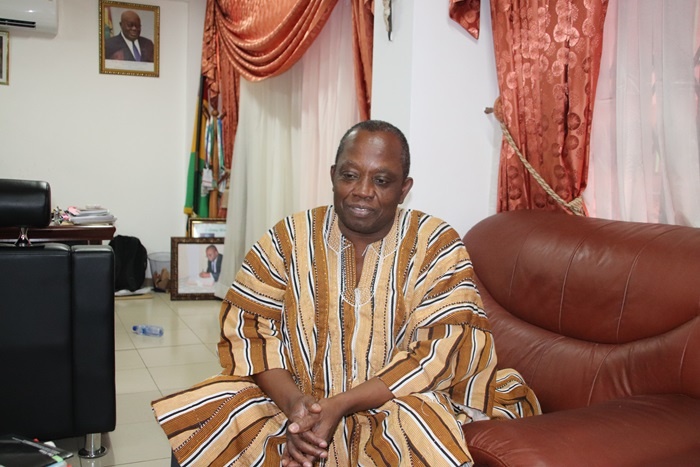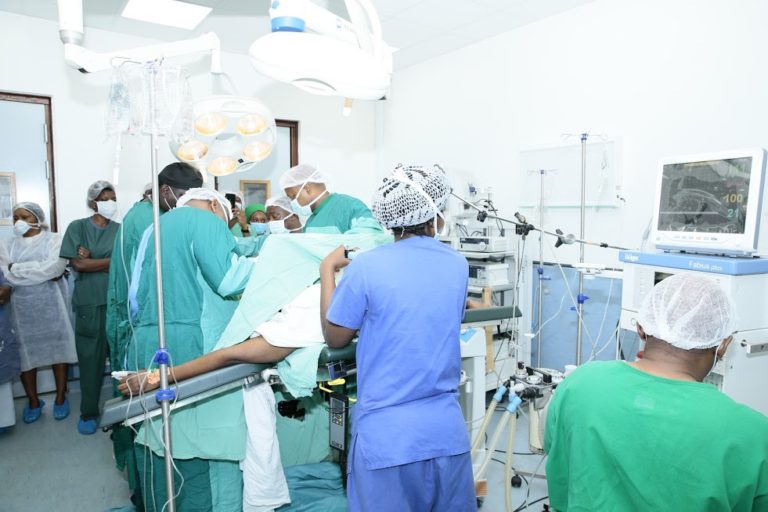In an interview with a local radio station back in October, a director at Ghana’s Center for Democratic Development sounded the alarm over the lack of citizen concern on issues of corruption following a pre-election survey.
About a month later Ghana’s first Special Prosecutor, Martin Amidu, resigned citing interference at various levels of governance, even up to the president. In his resignation letter, Amidu said Ghana President Akufo-Addo had mistaken him as his “poodle”.
In a more recent and much more scathing letter, Amidu described President Akufo-Addo as the “mother corruption serpent” and not the “innocent flower of anti-corruption” he once thought.
With less than three weeks to a general election, this resignation is probably the final report card assessing the Akufo-Addo administration’s corruption fight and the state has failed woefully.
Before this resignation, the government was already seen to have bowed to the whims of graft. Akufo-Addo’s tenure has been littered with corruption scandals not followed by requisite prosecution and punishment. Akufo-Addo has been tagged “a clearing agent” by the opposition because of the number of officials implicated in acts of corruption who appeared to receive protection from the state.
Despite this, the Center for Democratic Development’s pre-election survey indicated that only 6 percent of the electorate considered corruption a concern though it has a latent effect it has on other issues like infrastructure and management of the economy which receive much more attention.
In contrast, in the center’s survey ahead of Ghana’s elections in 2016, 62 percent of Ghanaians backed the perception that Ghana was corrupt and 75 percent of the electorate said corruption issues would influence their vote.
This was reflected in Akufo-Addo’s victorious campaign where he defeated the incumbent, John Mahama, handily. As far Akufo-Addo and his cohorts were concerned, corruption flowing through the veins of the Mahama administration. This was not far from the truth.
But four years on, it would appear that Ghanaians sat distracted in the back of the anti-corruption bus as the Akufo-Addo administration fell asleep at the wheel. More cynical observers will tell you that state actors were actively complicit in acts of corruption.
The timing of Amidu’s resignation is its own flaming red flag. He recently completed a corruption risk assessment on a controversial state agreement to leverage Ghana’s mineral royalties for developmental projects.
Among other things, Amidu concluded that this deal, the Agyapa Royalties Limited Transaction, violated multiple laws whilst the appointment of transaction advisors, which included a firm with ties to the Finance Minister, also flouted the law and did not meet the “fundamentals of probity, transparency, and accountability.”
Amidu claims the President directed him to hold off acting on this assessment. This was the last straw for him.
“We disagree on the non-partisan independence of the special prosecutor in the performance of functions of my office in preventing and fighting corruption and corruption-related offenses,” he said in his resignation letter.
The presidency denied the interference claim but confirmed that the President indeed met the Special Prosecutor earlier in November to discuss the deal which meant a line had been crossed.
If Akufo-Addo really respected the idea of independence, there would be absolutely no reason why he would be meeting with the Special Prosecutor in private, much less in such sensitive times.
Accompanying Amidu’s resignation were concerns about how well-resourced his office was. He and his deputy had not been paid any emoluments since 2008 and this was only rectified (by a presidential directive) after his resignation.
There is also the adjacent chatter over Amidu’s office space, or lack thereof, and utilization of budget allocations for recruitment among others. He has been operating out of what is generally a three-bedroom apartment and has been unable to hire more staff to ensure the efficient running of his office.
Amidu’s office had been offered a bigger building by the state but he deemed it unfit for human occupation.
As of September 2019, he had only three senior staff and nine junior staff. It is thus no surprise that, of the GHS 65.69 million transferred to Amidu’s office, only a little of over GHS 5.22 million had been utilized, according to the Presidency.
Some consider the under-utilization a slight on Amidu and more critical persons accuse him, incorrectly, of loafing about on the job. Amidu complained about his working conditions multiple times, including alleged interference from state actors, but he was told he whined too much and did little work.
That said, had Amidu not complained and created a ton of receipts from himself, he would be perceived in a much worse light now. “Why didn’t he speak up,” his critics would have asked.
Given his apparently dire treatment by the state, one legitimate question can be asked: Why didn’t he resign earlier?
Amidu tries to answer this in his resignation letter pointing to his commitment to fighting corruption over the years; even in his capacity as a private citizen. In his words, he was never an anti-corruption entrepreneur but a “non-partisan anti-corruption crusader.”
His track record of integrity was the reason his announcement as Special Prosecutor in January 2018 was met with much joy in the earlier days of the Akufo-Addo administration. How innocent we were.
Ghanaians had voted for change and the setting up of the Special Prosecutor’s Office was to be the beginning of the end of corruption’s stranglehold on Ghanaian governance.
But as it turns out, we were just characters in the fable about the scorpion and the frog. Corruption stung again and it hurt.
If I fault Amidu for anything, it staying too long in the job because it was clear quite early on that the state was not prepared to lay the foundations for an independent vanguard in the corruption fight.
Indeed, Amidu was appointed by the President, like the heads of other anti-graft offices before his that lacked bite so were we really expecting one plus one to equal three this time around?
Despite the constraints, Amidu pursued cases against multiple government officials, past and present but the Agyapa deal and the purported hurdle the President put his way is one he refused to jump. That Akufo-Addo may have stood in his way was probably a shock to him.
When Barack Obama visited Ghana three presidents ago, he stressed the need for strong institutions. Ghana is yet to take his advice. It is because of strong institutions that the United States of America did not collapse completely under the galactic weight of presidential incompetence.
Ghana tends to prioritize building personalities and not institutions but history has shown us that personalities are no match for the partisan state capture that permeates all arms of governance.
Lest we forget, Ghana’s Auditor-General Daniel Domelevo, another man perceived to be on the vanguard of the anti-corruption fight, was forced on an over-150 day leave in what amounts to a sacking. This was after he challenged with key state actors in another controversial deal.
No matter what faults one lays at the feet of the likes of Amidu and Domelevo it is ultimately a question of who the Ghanaian people should be giving the benefit of the doubt.
The Akufo-Addo administration should have been breaking its back to make sure the first Special Prosecutor’s tenure was successful, leaving absolutely no room for fault.
In my book, the buck always stops with the President because of the amount of power vested in the Executive by our constitution.
It is not that Amidu’s success would have meant a net-positive for the Akufo-Addo administration in the corruption fight. Rather it would have offered some hope that an institution could adequately fight corruption.
But Amidu’s resignation means there is still no light at the end of the tunnel.


















